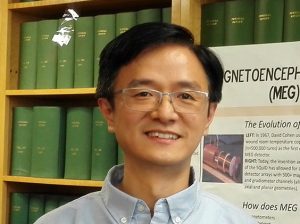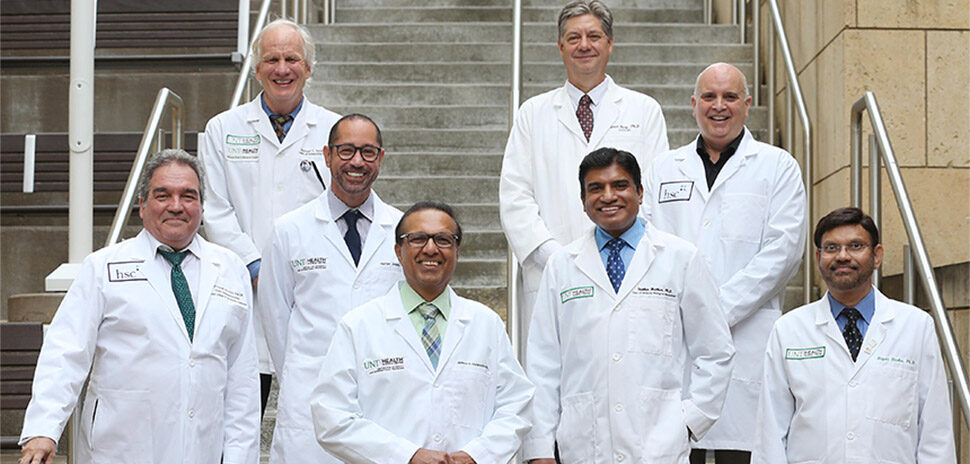THE PROJECT COULD LEAD TO A $200 MILLION CANCER TREATMENT CENTER
UT Southwestern Medical Center has received a $1 million planning grant from the National Institutes of Health to help launch the first heavy ion cancer treatment center in the nation, and it has enlisted the help of a physics professor from the University of the Texas at Arlington in the endeavor.

Prof. Mingu Jin is a physicist with expertise in radiology. [Photo via University of Texas at Arlington]
Our sister publication, D Healthcare Daily, reported that UT Southwestern was one of two institutions to receive the $1 million grants, and that Dr. Mingwu Jin of UT Arlington will receive $100,000 of that amount for his part in the project.
“Heavy ion cancer therapies are an option for terminal cancer where conventional radiation is not effective, but delivery of therapy has to be more precise as the radiation levels are much higher,” Jin said in a release. “We are using UT Southwestern’s database on cancer patients to simulate monitoring the effects of the therapy in the human body, with an aim to develop a new real-time dose monitoring technique that improves the precision of delivery.”
Jin, who has a background in electrical engineering and radiology, hope to create an imaging system that would help physicians see how each cancer treatment is affecting a patient in real time, D Healthcare Daily reported. That would make it easier to adjust the dosage as needed, it said.
According to the release from UT Arlington, Jin is working with Xun Jia and Yiping Shao of UT Southwestern’s Department of Radiation Oncology on the project.
Jin also received a separate $153,543 from the National Institutes of Health for a separate project to help increase the accuracy of real-time imaging during cancer treatment, D Healthcare Daily reported.
According to the report, the treatment center likely will cost $200 million, with $70 million of that total going to the building and $130 million to technology. It likely would be operated by a consortium of academic health systems across the state of Texas.
To read the D Healthcare Daily article, please go here.
For a daily dose of what’s new and next in Dallas-Fort Worth innovation, subscribe to our Dallas Innovates e-newsletter.





































































